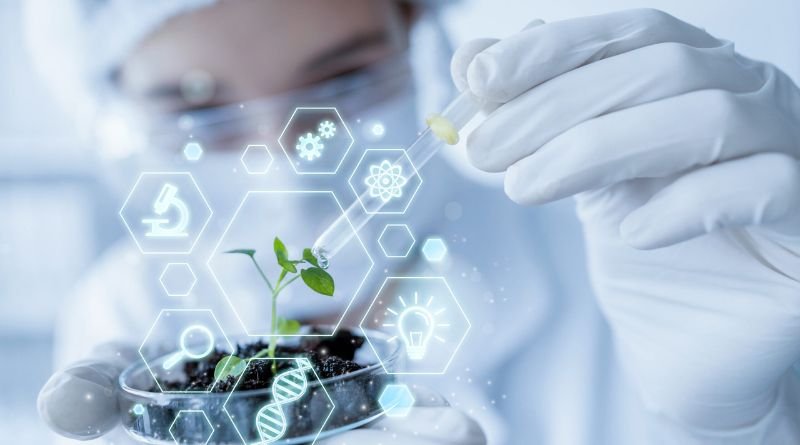In recent years, biotechnology has emerged as a groundbreaking field, revolutionizing medicine and transforming how we approach health and disease. By merging advanced technology with biological science, biotechnology offers innovative solutions for diagnosing, treating, and preventing a range of medical conditions. This article delves into some of the most exciting breakthroughs in biotechnology and explores how these advancements are shaping the future of healthcare.
What is Biotechnology?
Biotechnology is the application of biological systems, organisms, or derivatives to make or modify products or processes for specific uses. It combines principles from biology, chemistry, and engineering to develop technologies and products that improve human health, agriculture, and the environment. This interdisciplinary field leverages molecular biology, genetic engineering, and computational science to create new solutions and innovations.
Key Biotechnology Breakthroughs
1. CRISPR-Cas9 Gene Editing
One of the most significant advancements in biotechnology is the development of CRISPR-Cas9, a powerful tool for gene editing. CRISPR (Clustered Regularly Interspaced Short Palindromic Repeats) is a naturally occurring system in bacteria that has been adapted to target and modify specific DNA sequences in other organisms. The Cas9 protein acts as molecular scissors, allowing scientists to cut and edit genetic material with unprecedented precision.
Applications:
- Genetic Diseases: CRISPR holds promise for treating genetic disorders such as cystic fibrosis and sickle cell anemia by correcting faulty genes.
- Cancer Research: Researchers are exploring CRISPR to enhance immune cells to better target and destroy cancer cells.
- Agriculture: CRISPR is also being used to develop crops with improved traits, such as increased resistance to diseases and pests.
2. Personalized Medicine
Personalized medicine, also known as precision medicine, tailors medical treatment to the individual characteristics of each patient. Advances in biotechnology, particularly genomics and bioinformatics, have enabled the development of personalized approaches to diagnosis and treatment.
Applications:
- Genomic Profiling: By analyzing a patient’s genetic makeup, doctors can predict how they will respond to specific treatments and tailor therapies accordingly.
- Pharmacogenomics: This field studies how genes affect an individual’s response to drugs, helping to avoid adverse drug reactions and increase the efficacy of treatments.
- Targeted Therapies: Personalized medicine allows for the development of targeted therapies that focus on specific genetic mutations involved in a patient’s disease.
3. Regenerative Medicine
Regenerative medicine aims to repair or replace damaged tissues and organs through techniques such as stem cell therapy and tissue engineering. This field holds immense potential for treating conditions that currently have limited treatment options.
Applications:
- Stem Cell Therapy: Stem cells have the ability to differentiate into various cell types, offering potential treatments for conditions like spinal cord injuries, heart disease, and neurodegenerative disorders.
- Tissue Engineering: Scientists are developing techniques to grow tissues and organs in the lab, which could one day provide solutions for organ transplants and repair damaged tissues.
4. Biotechnology in Diagnostics
Advancements in biotechnology have also revolutionized diagnostics, making it possible to detect diseases earlier and more accurately.
Applications:
- Molecular Diagnostics: Techniques such as polymerase chain reaction (PCR) and next-generation sequencing (NGS) allow for the detection of genetic and infectious diseases at a molecular level.
- Biomarkers: Researchers are identifying biomarkers—biological molecules indicative of a disease—which can be used for early detection, diagnosis, and monitoring of diseases.
5. Synthetic Biology
Synthetic biology involves designing and constructing new biological parts, devices, and systems, or re-designing existing biological systems for useful purposes. This field combines principles of biology and engineering to create new biological entities.
Applications:
- Biofuels: Synthetic biology is being used to develop microorganisms that produce biofuels, offering a sustainable alternative to fossil fuels.
- Biomanufacturing: Engineers are creating synthetic organisms to produce valuable chemicals, materials, and pharmaceuticals, enhancing production efficiency and reducing costs.
Challenges and Ethical Considerations
Despite its potential, biotechnology also presents challenges and ethical considerations that need to be addressed:
- Ethical Issues: Gene editing technologies like CRISPR raise ethical questions about the potential for “designer babies” and the long-term effects of genetic modifications.
- Access and Equity: Ensuring that the benefits of biotechnological advancements are accessible to all, regardless of socio-economic status, is a critical concern.
- Safety and Regulation: As biotechnology continues to advance, robust safety and regulatory frameworks are necessary to ensure that new technologies are safe and effective.
FAQs
1. What is biotechnology?
Biotechnology is the use of biological systems, organisms, or derivatives to develop products or processes for specific applications, particularly in medicine, agriculture, and industry.
2. How does CRISPR-Cas9 work?
CRISPR-Cas9 is a gene-editing tool that uses a guide RNA to target specific DNA sequences and the Cas9 protein to cut the DNA at the targeted location, allowing for precise modifications.
3. What are some applications of personalized medicine?
Personalized medicine includes genomic profiling to tailor treatments, pharmacogenomics to predict drug responses, and targeted therapies to address specific genetic mutations.
4. What is regenerative medicine?
Regenerative medicine involves repairing or replacing damaged tissues and organs through techniques such as stem cell therapy and tissue engineering.
5. How has biotechnology impacted diagnostics?
Biotechnology has improved diagnostics through molecular techniques like PCR and NGS, and by identifying biomarkers for early disease detection and monitoring.
6. What are some applications of synthetic biology?
Synthetic biology is used to develop biofuels, create synthetic organisms for biomanufacturing, and design new biological systems for various applications.
Conclusion
Biotechnology is at the forefront of medical innovation, merging technology with biological science to create groundbreaking solutions for health and disease. From gene editing to personalized medicine and regenerative therapies, these advancements hold the promise of improving human health and transforming the future of medicine. As the field continues to evolve, addressing ethical considerations and ensuring equitable access will be crucial in maximizing the benefits of biotechnology for all.
